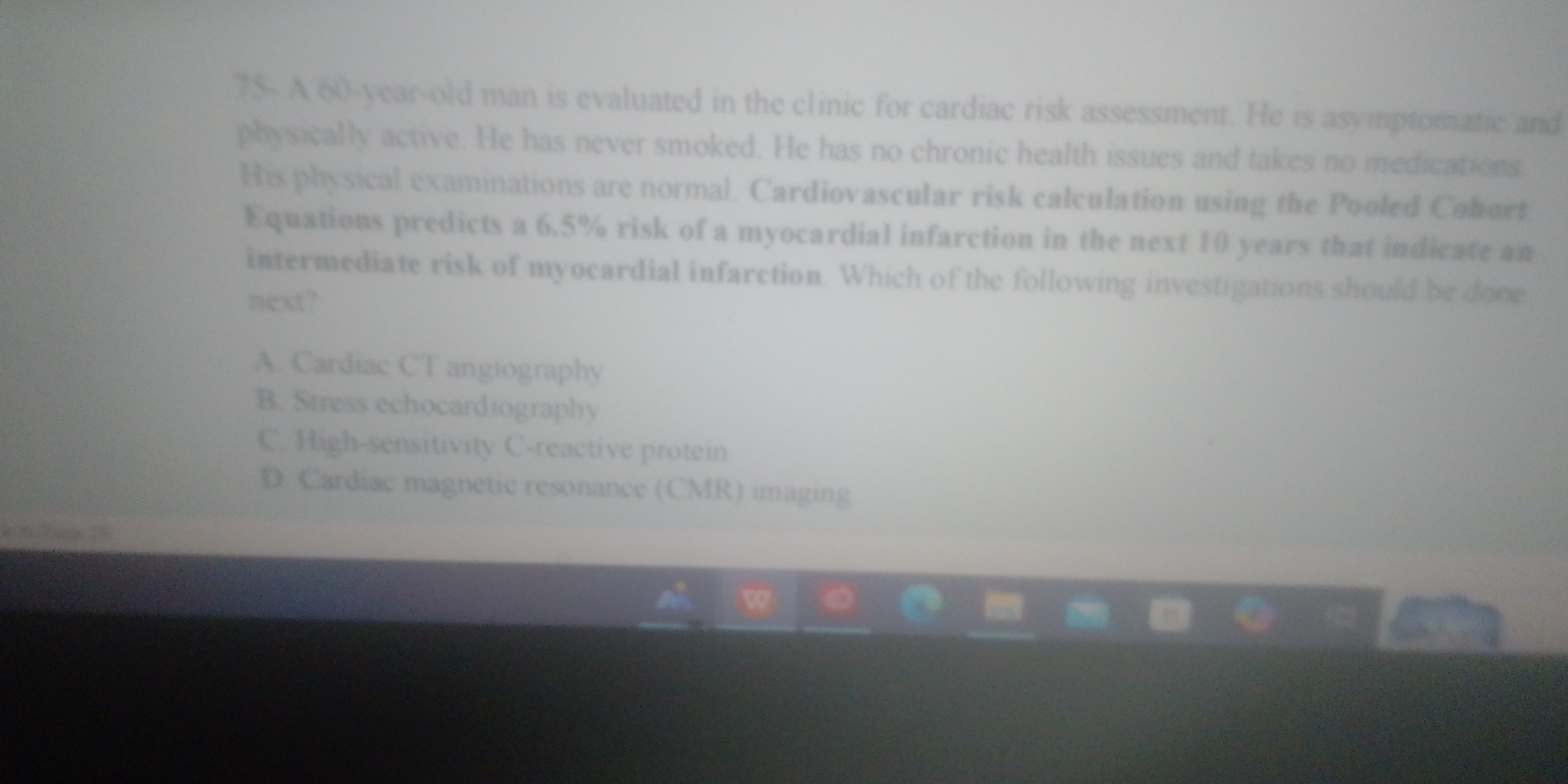A 60-year-old man is evaluated in the clinic for cardiac risk assessment. He is asymptomatic and physically active. He has never smoked, has no chronic health issues, and takes no... A 60-year-old man is evaluated in the clinic for cardiac risk assessment. He is asymptomatic and physically active. He has never smoked, has no chronic health issues, and takes no medications. His physical examinations are normal. Cardiovascular risk calculation predicts a 6.5% risk of myocardial infarction in the next 10 years indicating an intermediate risk. Which of the following investigations should be done next? A. Cardiac CT angiography B. Stress echocardiography C. High-sensitivity C-reactive protein D. Cardiac magnetic resonance (CMR) imaging

Understand the Problem
The question presents a clinical scenario involving a 60-year-old man undergoing a cardiac risk assessment and asks which investigation should be conducted next, given his intermediate risk for myocardial infarction. The focus is on understanding appropriate medical protocols for managing this risk.
Answer
High-sensitivity C-reactive protein (C).
The final answer is C. High-sensitivity C-reactive protein.
Answer for screen readers
The final answer is C. High-sensitivity C-reactive protein.
More Information
High-sensitivity C-reactive protein is used to refine cardiovascular risk assessment, especially for patients at intermediate risk for atherosclerotic cardiovascular disease events.
Tips
Common mistakes include choosing imaging tests which are usually not the initial step for asymptomatic individuals unless clinically indicated.
AI-generated content may contain errors. Please verify critical information